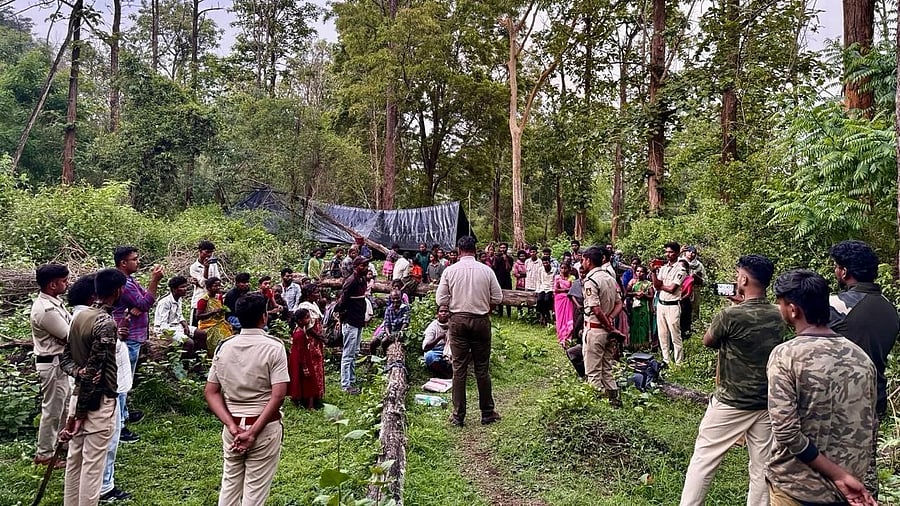
Shivu J A, President of Karadikallu Gram Sabha in Nagarahole said that the government's conservation model has led to their dispossession.
Credit: CNAPA
Bengaluru: Adivasis, activists and experts came together on Monday to oppose "forced evictions and violence" in India's tiger reserves and said the authorities were showing satellite maps of 1990s and later whereas they were forcibly evicted in 1985.
In an online meet organised by the Community Networks Against Protected Areas (CNAPA), Shivu J A, president of Karadikallu Gram Sabha in Nagarahole said the government's conservation model has led to their dispossession.
"In the 1980s, we were thrown out of our ancestral lands in Attur Karadikal haadi. I want to go back to the land of my ancestors. It's not just me. We are 52 families. The notification of the tiger reserve itself is illegal as people living inside the forests for generations were never consulted," he said.
Pranab Dolay of CNAPA hailed the adivasis of Nagarahole who have been trying to reclaim the land since last month, as people blazed a new path. For the first time, a community has shown us the way ahead.
There's a strong debate that's going on not only nationally but internationally on what sense of justice these people will show us or what we collectively do to contribute to this just cause, he said.
"The fortress model of conservation brings a more militarised form of territorial protection. Adivasis were barred from using their commons or sacred sites. It's happening in every reserve," he said.
Political ecologist Nitin D Rai said some of the mainstream arguments and experiments, including the separation of people from their forests, to conserve the forest were born in the research done in Nagarahole by Ullas Karanth. "A lot of these models, we've now seen over the last two decades, are a failure," he said.
He noted that sociologists have already established how adivasis were exploited and dispossessed by the British. "The increase in tiger numbers is being heralded as the success of a state initiative and to justify the dilution of environmental rules," he added.
Mumbai-based lawyer Lara Jesani sought to stress that both the individual and community rights or rights over community forest resources that were provided under the Forest Rights Act were recognition of historic rights.
"The law did not grant any new rights. These rights already existed, and the Act was actually brought in in order to give a statutory or legal character to those rights," she added.
Shivu and community members stated that they will file an appeal against the rejection of 39 forest rights claims. "We will write to the state and Central authorities for an illegal rejection of our claims," he said.